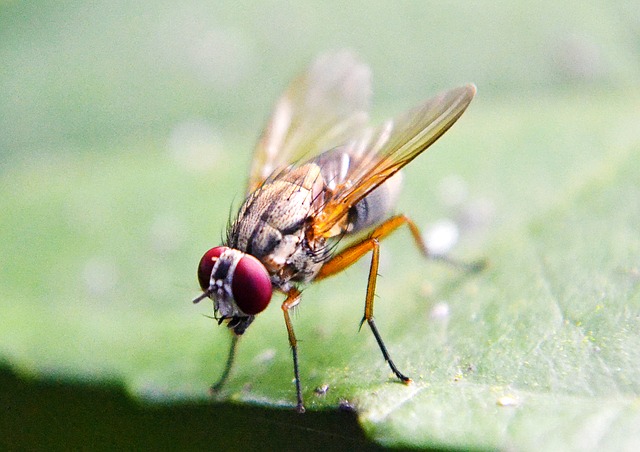October 23, 2019
By Lynda Kiernan
Thai Union, the world’s largest producer of shelf-stable tuna products, has launched a $30 million food tech venture fund, and has made its first investment in Flying SpArk, an Israeli insect-based alternative protein startup.
Dedicated to making investments in innovative companies that are developing cutting-edge food technologies, the fund will focus on three specific areas of interest: alternative protein, functional nutrition, and value chain technology, and will actively partner with its portfolio companies to accelerate their development.
“Over the last years, Thai Union has made significant investments to become a leader in seafood innovation and sustainability,” said Thiraphong Chansiri, CEO of Thai Union.
“As we move into the coming decade, we will increasingly cooperate with innovative start-ups in strategically interesting areas. This will complement our own activities as we are broadening our business beyond our traditional core.”
Jumping Off
As its initial VC investment, Thai Union has chosen to back Flying SpArk, an Israel-based producer of insect protein for human consumption derived from the Mediterranean fruit fly.
Flying SpArk bases its production on Ceratitis Capitata – larvae that live for only seven days – but which multiply their body mass by 250 times over that time period. By applying its technology, Flying SpArk is able to produce 70 percent protein powder that is rich in iron, calcium, magnesium, dietary fibers, and amino acids through a process that is resource-efficient, creates no methane emissions, and is antibiotic and hormone-free. And by being nearly zero-waste, and using every part of the larvae, Flying SpArk has a decided advantage over other alternative protein startups using crickets or grasshoppers.
This investment and partnership with Thai Union will now enable Flying SpArk to advance its insect growing and processing capabilities in Thailand, as the startups works to further reduce costs and improve its processes.
“We are excited to collaborate with this leading multinational seafood company,” said Eran Gronich, CEO and founder of Flying SpArk. “Thai Union and Flying SpArk see eye-to-eye on the need for future alternative protein products to offer high-value protein while minimizing the ecological footprint. This marks a significant step forward in bringing insect protein into the food industry mainstream.”
In 2017, Flying SpArk was one of 10 startups selected for IKEA’s inaugural accelerator, IKEA Bootcamp, a program designed to foster growth for innovators looking to solve what IKEA calls the “Big Problems” in order to “co-create a better everyday life”.
Addressing one of the “Big Problems” is integral to Flying SpArk’s mission, and a key reason it was chosen by IKEA to join its first bootcamp class. Global population growth is on a trajectory toward a human population of 9 billion within one generation, according to the company, of which half will be faced with inadequate nutrition.
Broadening the view, 30 percent of the calories we consume are derived from meat products, according to CB Insights. However, consumers are more closely engaged with their food supply chains and retail choices than ever. In recent years, concerns associated with animal protein production have increasingly come to the fore, including antibiotic resistance, sustainability, animal welfare, food-borne illnesses, and environmental impact.
All the Buzz
Although still far from being mainstream in Western cultures, the numerous benefits of sourcing protein from insects – and the EU Commission’s approval of insect-derived protein for inclusion in aquaculture feed rations on December 13, 2016 – has prompted a range of startups in the space and has sparked interest in the investment universe.
This growing acceptance has been reflected in the number of startups coming online and larger investment rounds.
Companies including Dutch biotech startup Protix, Irish biotech startup Hexafly, and French startups NextProtein and Ynsect have all been raising capital since 2016. More recently, the industry has been gaining traction, with larger investments from more high-profile investors.
In June 2018, AgriProtein Holdings UK set a new high in investor commitment to the sector when it raised $105 million. Less than a year later, in January 2019, AgriProtein went on to acquire Millibeter N.V., a Belgian insect feed company, for an undisclosed amount.
And in August 2018, ADM Capital’s Cibus Fund, which closed at $452 million in funding this January, led a significant funding round for Enterra Feed Corporation, a top developer and producer of sustainable insect-based feed ingredients for the aquaculture, pet food, and poultry feed industries.
– Lynda Kiernan is Editor with GAI Media and daily contributor to the GAI News and Agtech Intel platforms. If you would like to submit a contribution for consideration, please contact Ms. Kiernan at lkiernan@globalaginvesting.

Let GAI News inform your engagement in the agriculture sector.
GAI News provides crucial and timely news and insight to help you stay ahead of critical agricultural trends through free delivery of two weekly newsletters, Ag Investing Weekly and AgTech Intel.




